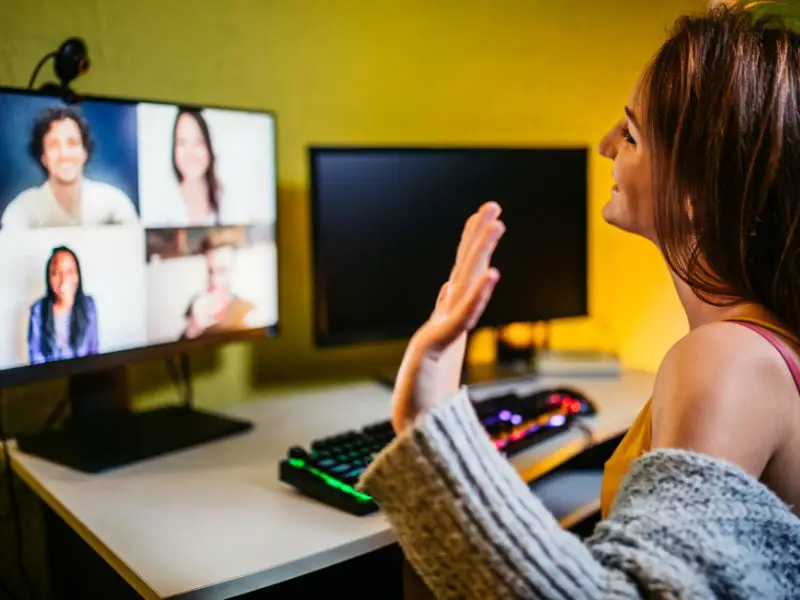The COVID-19 pandemic may have brought about several changes in your way of life, including uncertainty, disruption of daily routines, financial stress, and social isolation at times.
It’s easy to worry about getting sick, how long the world will recover from the pandemic, whether it will affect your employment, and what the future holds. Information overload, gossip, and disinformation may make you feel like your life is spinning out of control, and it can be challenging to know what to do.

Compared to surveys conducted before the pandemic, the number of U.S. adults reporting pandemic anxiety, stress, depression, and sleeplessness increased significantly. Some individuals believe that increasing their alcohol or drug consumption will help them cope with their anxieties about the pandemic. In actuality, these drugs can exacerbate anxiety and sadness.
For all these reasons, this article provides self-care strategies for your mental health, including ways to endure the adverse effects of the pandemic.
Post-Pandemic Self Care
Self-care strategies can help you deal with the adverse effects of the pandemic, such as stress, anxiety, and depression. Take care of your body and mind and get in touch with people to improve your mental health.
You can start by doing several small things that help you cope with COVID moments, such as:
1. Get Enough Sleep
Getting enough sleep is essential for coping with the COVID-19 pandemic. Even staying at home, keep your sleep and waking hours consistent with your routine.
2. Eat Healthily
Avoid eating up a lot of junk food and processed sugar. Caffeine should be consumed in moderation since it might worsen tension, anxiety, and sleep issues.
3. Avoid Drugs, Alcohol, and Tobacco
If you smoke tobacco or vape, you are already at an increased risk of developing lung illness. Attempting to cope with alcohol might exacerbate the situation and erode your coping abilities. Avoid using pharmaceuticals unless your doctor has recommended it for you.
4. Limit Screen Time
In the evening, switch off your electronic gadgets for 30 to 60 minutes before sleeping. Also, avoid spending a lot of time in front of a tv, tablet, computer, or phone.
5. Relax and Chill
Make time for yourself. Even a few minutes of quiet time may be rejuvenating and beneficial in calming your thoughts and reducing tension. Deep breathing, tai chi, yoga, mindfulness, and meditation are healthy activities for many people. Relax by having a bubble bath, listening to music, or reading a book – whatever helps you relax. Pick a system that works for you and put it into practice regularly. These forms of relaxation are proven to decrease depression and stress.
How to Reduce Stress Triggers
1. Maintain Your Routine
Maintaining a consistent daily schedule is critical for mental wellness. Along with a consistent nighttime routine, maintain predictable hours for meals, bathing and dressing, job or study habits, and exercise. Additionally, schedule time for hobbies that you like. This regularity might give you a sense of security.

2. Reduce Your Exposure to News Media
Constant exposure to COVID-19 news in all forms of media can exacerbate anxieties about the disease. Reduce your exposure to social media platforms that may expose you to rumors and misleading information. Additionally, minimize your reading, listening, and seeing other news, but stay current on national and local guidelines. Consult reputable sources such as the Centers for Disease Control and Prevention (CDC) in the United States and the World Health Organization (WHO).
3. Stay Busy
Distract yourself with healthy activities to break the loop of negative thoughts that fuel anxiety and despair. Take up activities that you can accomplish at home, such as reading a book, journaling, crafting, playing games, or preparing a new cuisine. Alternatively, find a new project or tackle that closet cleaning you swore to do. Taking constructive action to alleviate worry is a good coping method.
4. Concentrate on Positive Thoughts
Choose to focus on the good aspects of your life rather than on how you feel. Consider starting each day by creating a list of things you are grateful for. Maintain a feeling of optimism, seek to accept changes, and keep problems in perspective as they come.
5. Prioritize Tasks
Don’t get overwhelmed by making a list of things you want to do at home. During each day, write down the steps you can take to reach your goals. It doesn’t matter how small the steps are, as long as you make the step in the right direction. And understand that some days will be better than others, while others are not what you expect.
Connect With Others
Build trust and support for your friends and family:
Establish Connections
Avoid social isolation if you work from home or need to distance yourself from people for a long time due to COVID-19. Make time to communicate virtually via email, SMS, phone, or video chat each day. Ask your coworkers how they’re doing and offer coping strategies if you work from home. Enjoy virtual mingling and communicating with individuals in your home.

If you are not completely vaccinated, be creative and safe when engaging with individuals, such as going for walks, conversing in the driveway, and participating in other outside activities.
If you are vaccinated, you can return to indoor and outdoor activities that you may have been unable to participate in during the pandemic, such as gatherings with friends and family. However, suppose you reside in a neighborhood where new COVID-19 cases have been reported in the recent week. In that case, the CDC suggests wearing a mask indoors or outside in busy settings or in close contact with unvaccinated people.
Help Others
Find meaning in assisting those around you. Helping others is a great way to assist ourselves. For example, email, text, or contact your friends, family members, and neighbors, especially those who are elderly. Whether you know someone unable to leave their home, ask if there is anything that needs to be picked up, such as groceries or a prescription.
Give Support to Family Members and Friends
Give assistance to those caring for an elderly or disabled loved one. Or inquire if anyone can use help around your home, such as mowing the lawn, painting the garage, or cleaning the pool.
Get Involved
Volunteer for a COVID-19 or other health awareness program in your community or church. Meet new people and start friendships with like-minded individuals. You might receive emotional support and a respite from concerns about yourself and others. It also may be therapeutic to help others who are experiencing similar challenges to yours.
Be with Nature
Nature can provide an uplifting and calming effect. You might meditate in nature, hike in the mountains, or surf on the beach. Being with nature will help you find peace and balance in your life.

Take a look at these articles that can help you reduce anxiety and begin connecting with nature and your family: Eco Friendly Activities for Kids, Eco Friendly Lifestyle, Reduce Stress Naturally
How to Stay Away From Stigma and Discrimination
Stigma can lead to feelings of isolation and even abandonment. You may experience depression, sadness, and anger if your friends and neighbors shun you for fear of contracting COVID-19.
Stigma has several adverse effects on people’s health and wellbeing. During a pandemic, stigmatized groups are frequently denied the resources necessary to care for themselves and their families. Additionally, individuals who are fearful of stigma may be less inclined to seek medical care.
How to Reduce Stigma
- Obtaining information about COVID-19 from trustworthy sources like the CDC and WHO
- Speak up if you hear or see false remarks concerning COVID-19.
- Connect people who feel stigmatized.
- Show some love for healthcare workers.
Getting Help with Pandemic Anxiety and Depression
Expecting mental health issues such as anxiety or depression to resolve on their own might exacerbate symptoms. If you have concerns or suffer worsening mental health symptoms, get assistance when you need it and be honest about your condition. To get assistance, you may wish to:
- Contact a close friend or loved one by phone or social media, even if it may be challenging to discuss your emotions.
- If your company provides an employee assistance program, ask for counseling or a referral to a mental health expert.
- Call your primary care physician or a mental health professional to inquire about organizing a consultation to discuss your anxiety or depression and welcome advice and guidance. Some may provide the option of scheduling appointments through phone, video, or online.

Author’s Note
Keeping your mental health in check while the world is recovering from a pandemic is essential. As mentioned before, many people are not aware that they have mental health issues. It is necessary to work at yourself and ensure that you do everything required for your mental well-being.
Do things to keep yourself in a positive mood, such as doing some exercise, being mindful of what you eat, going outdoors, surrounding yourself with nature, and taking time for yourself every day. You can also use some of the specific tips mentioned here, such as prioritizing your tasks and keeping active. Taking care of yourself mentally is just as necessary as physically.


1 thought on “Pandemic Anxiety and Depression: What You Can Do to Reduce Them”